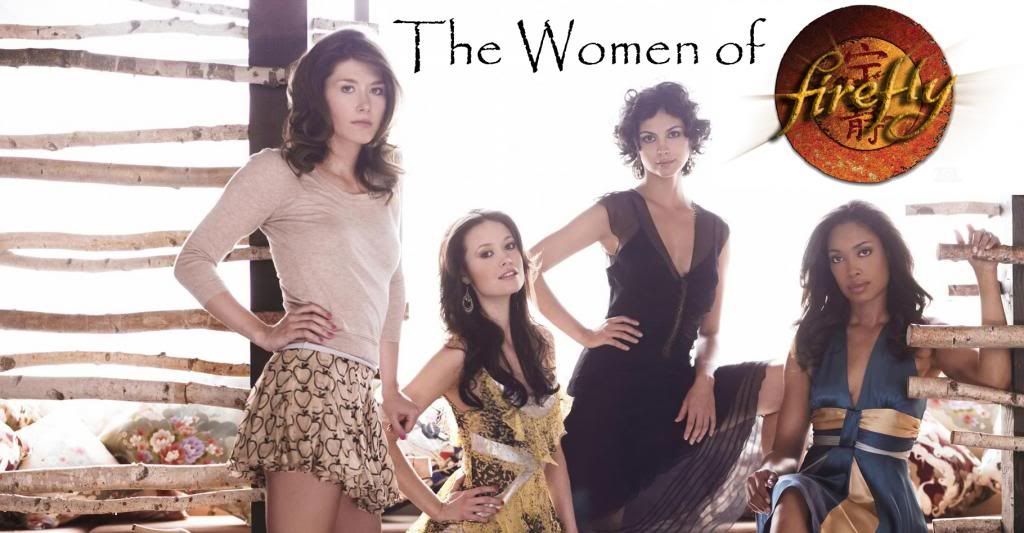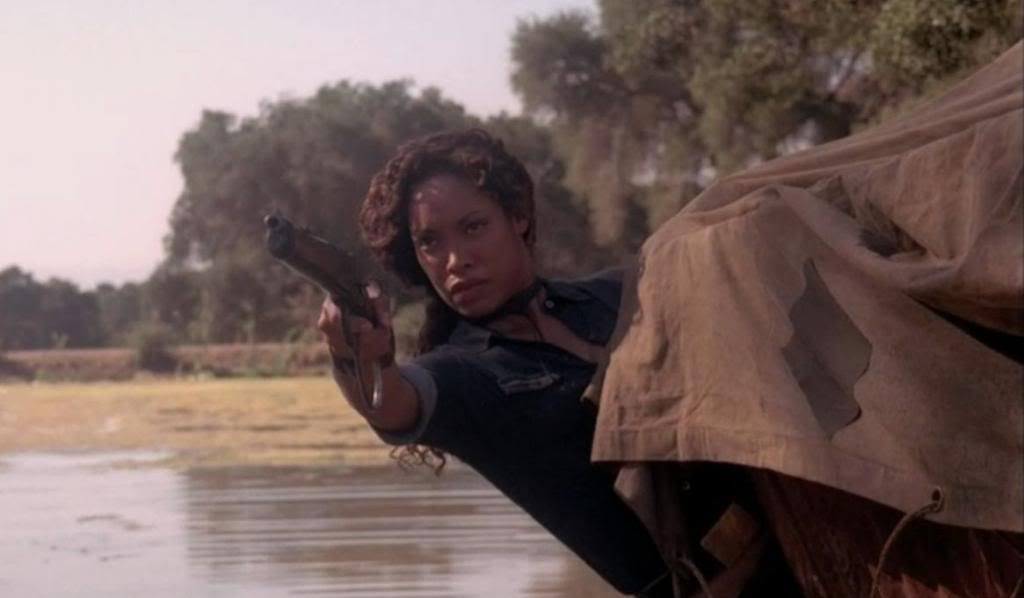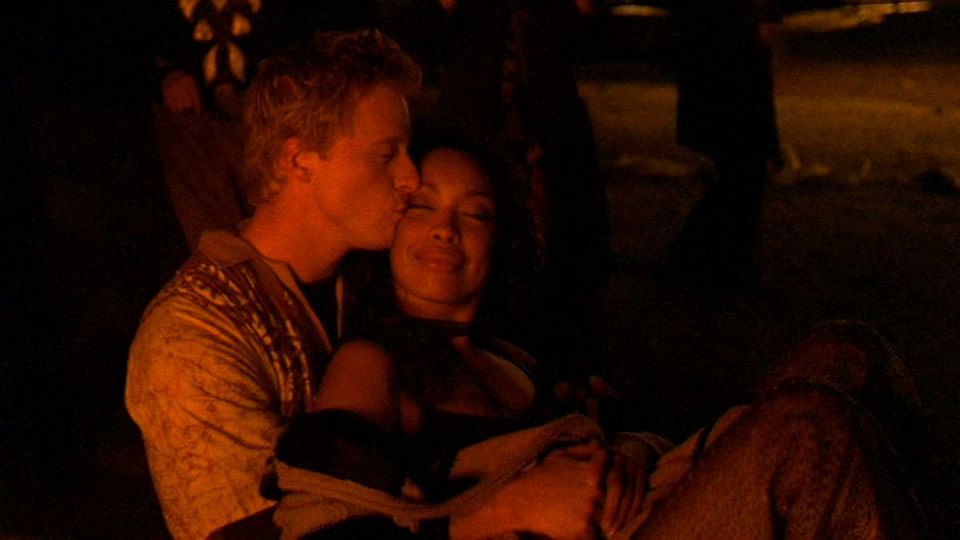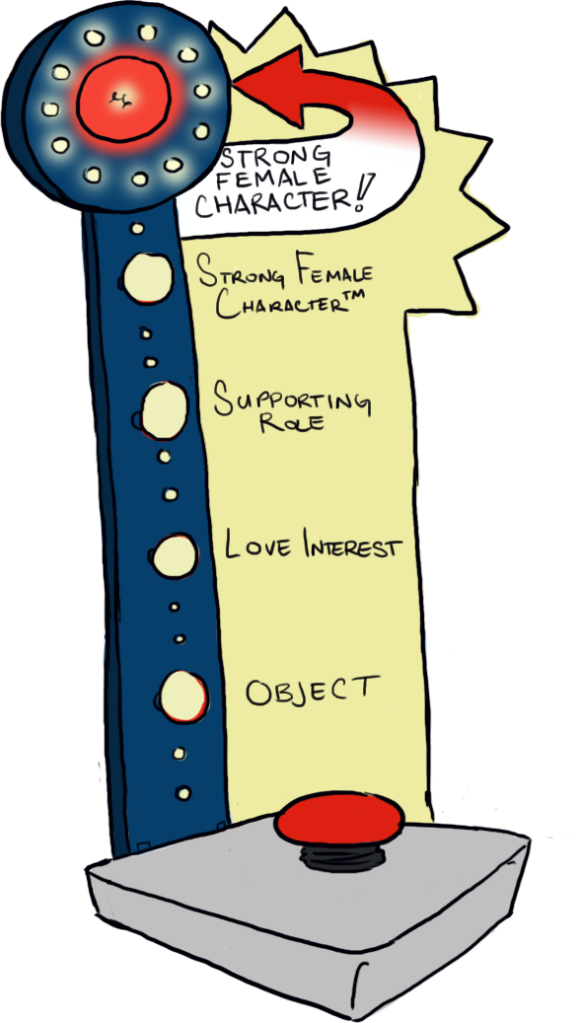We
all have that show. You know the one: the show you watch for the first
time and proclaim its brilliance throughout the land, secure in the
knowledge that you’ll love it forever. Then you watch it again a couple
of years later and notice some flaws, but nostalgia prevents you from
questioning your love. After all, nothing and nobody is perfect.
Finally, two or three years on, you brush off the cobwebs on the DVD
case and pop it into the player, only to be confronted with a harsh
reality: far from being perfect, your one true show is actually kind of a
mess. The honeymoon is over.
I
don’t want to hyperextend this metaphor into tales of the show’s
devoted spouses, who still have a spark in their eye after eleven years
of marriage to a series that could only ever provide them with fourteen
episodes and a movie, or bitter exes who gather on the Internet to
commiserate about heroic slut-shaming and unnecessary deaths in the name
of creating serious art. What I want to do is begin what promises to be
a lengthy foray (comprised of several expeditions -- let’s be real
here, we’re not doing them all in one go) into the work of Joss Whedon,
the acclaimed writer renowned for his strong female characters.
To that end, let’s delve into the universe of Firefly.
The show, which aired in 2002, tells the story of a space cowboy,
Malcolm Reynolds, and his crew of smugglers, who travel the galaxy doing
mostly illegal jobs under the nose of the all-powerful Alliance. The
first member of the crew and second in command is Zoe Washburne, a woman
who fought alongside Mal six years earlier in the war against the
Alliance.
According
to her husband, Zoe is a “warrior woman,” a gifted military tactician
who can take out soldiers with complete stealth and lead a successful
attack on a space station with a force of eight. She is shown on several
occasions to put herself in the line of danger to save someone; the
most impressive instance occurring in “Out of Gas,” where she literally
jumps in front of a fireball to save Kaylee. She is stoic, self-assured,
and courageous, and she manages to stay calm and cool even in the most
emotionally trying circumstances. She is, as she states in an
observation about both herself and Mal, a “big damn hero.”
While
Zoe is pretty clearly the “strongest” female character on the show,
it’s difficult to deny that her life revolves around two men. The first,
Mal, is her former superior officer whom she still calls “sir.” Theirs
is the bond of soldiers, strengthened by the shared experience of
horrific circumstances. In many ways, Zoe serves as Mal’s opposite; his
chattiness contrasts with her reservation, and his recklessness is the
counterpoint to her caution. She often becomes the voice of reason,
telling him when the situation is too dangerous. Because of her
well-established bravery and competence, these warnings never come
across as cowardly; instead, the fact that we implicitly trust Zoe’s
judgment means that we know things are about to get ugly. In their
comedy duo, she’s the straight man who sets up many of Mal’s best lines.
She
is also, as has been mentioned in many other discussions of the show, a
Black woman who fought for an army coded as the American Civil War
South who calls her white captain “sir” years after leaving the army.
While most of her character seems carefully constructed to subvert
tropes, I can’t help but think that that little issue slipped through
unnoticed.
One
such subversion lies in her happy marriage. In many stories, a woman
who possesses as many stereotypically masculine traits as Zoe would have
to relinquish them when she entered into a heterosexual union. It’s
fine for a man to be attracted to a warrior woman, but when they settle
down, the subtext is often that she had better settle down as well.
That’s not the case in Firefly, where Zoe goes out on missions while Wash stays with the ship.
They
are shown at all times to be completely in love. We see that they have
an active sex life and a sincere desire for each other, subverting the
television stereotype of the sexless marriage. Their arguments generally
revolve around the hectic lives they lead, as Wash struggles to secure
some one-on-one time with Zoe off-ship. At times, they struggle with
communication, at least in part because the one person with whom Zoe is
not always honest is Wash. When he proposes a plan to cut out the
middlemen in some of their dealings, she hides behind Mal’s disapproval
of the plan to avoid having to tell her husband that she agrees that
it’s a bad idea. She wants to spare his feelings, but he accuses her of
not having her own opinions.
Zoe
and Wash’s conflict comes to a head in “War Stories,” in which a
jealous Wash takes Zoe’s place on a mission only for both him and Mal to
get abducted by a vengeful ex-client. Much of the episode revolves
around Wash’s perception of Zoe and Mal’s relationship; he sees Mal as
the second husband to whom Zoe vowed her obedience. Mal assures him that
Zoe disobeys him quite regularly, most egregiously by marrying him.
Soon Mal is playing off of Wash’s jealousy to keep him alive, feeding
his fury to help him weather horrible torture. When Zoe arrives with an
insufficient ransom, she doesn’t even have to think about which man she
will save, choosing Wash before the evil Niska has even finished
speaking.
Although
there are some dubious aspects of this set-up -- the most obvious being
the fact that most of the conflict between Wash and Zoe is actually
worked out between Wash and Mal -- there is a fascinating point being
made in the conversation between two men about an absent woman. It would
be easy to reduce Zoe to an object at this moment, but that’s not what
happens. Instead, Wash turns to his wife as a source of strength,
framing his own survival as a game of “What Would Zoe Do?” Meanwhile, we
see Zoe deducing who has the men and working out a plan to get them
back. Although it is ultimately Wash who decides to return for Mal, Zoe
leads the assault. The episode ends with a confirmation of the platonic
status of Zoe and Mal’s relationship.
I actually consider Zoe and Wash’s marriage to be one of the best parts of Firefly and Serenity.
They have realistic issues, but they resolve them and move on. Those
issues that remain, such as their disagreement over when they should
have a child, are addressed as they arise, but not dramatically blown
out of proportion. They are both truly supportive of each other, and
it’s clear that their love is partially based on an admiration for their
partner’s abilities. While Zoe is hyper-competent and Wash is a bit
goofy, they never fall into the stereotypical roles of the sitcom
couple. They do, however, fall victim to one of Joss Whedon’s favourite tropes.
I am, of course, referring to character death. In the follow-up movie to Firefly,
the crew of the eponymous good ship Serenity must find their way to the
home of Mr. Universe, a man whose computer equipment is capable of
sending information across the galaxy. Wash does the best flying of his
life, landing the ship with minimal damage and no casualties... or so it
seems, before Wash is impaled on a Reaver harpoon. His death causes Zoe
to descend for the first time into a frantic, emotional panic. However,
by the next scene, she has regained her usual stoic demeanour,
responding to Kaylee asking about Wash’s whereabouts with “He ain’t
comin’.” She has shifted her focus away from her grief to the task at
hand. Her determination is largely the result of her giving up all hope;
she is certain that they’re making their last stand, so she commits to
completing one final mission.
When
they manage to make it out alive, the crew holds a funeral for Mr.
Universe and their lost crew members. The last time we see Zoe, she is
repairing Serenity, symbolically looking forward to the next mission.
I’d
like to conclude this post with something of a departure from our
typical analyses by positing a “what if” scenario. Basically, what if
Mal weren’t the main character? Or, more pointedly, what if, in creating
a show about Western adventures in space, Joss Whedon and Tim Minear
had passed over the obvious white, male lead for a Black, female one?
Both Mal and Zoe fought as Independents in the Battle of Serenity
Valley. Wouldn’t it have been interesting to see why Zoe joined up,
especially given the Civil War symbolism? Wouldn’t it have been
fascinating to see a woman of colour fighting against the oppressive,
largely white hegemony? Wouldn’t it at least have made sense,
considering the obvious Asian influence on the Firefly
universe, to make the protagonist Chinese, if it was too difficult in
2002 to conceive of a Black woman as a damn hero big enough to warrant
top billing?
Verdict: Actual strong female character





No comments:
Post a Comment